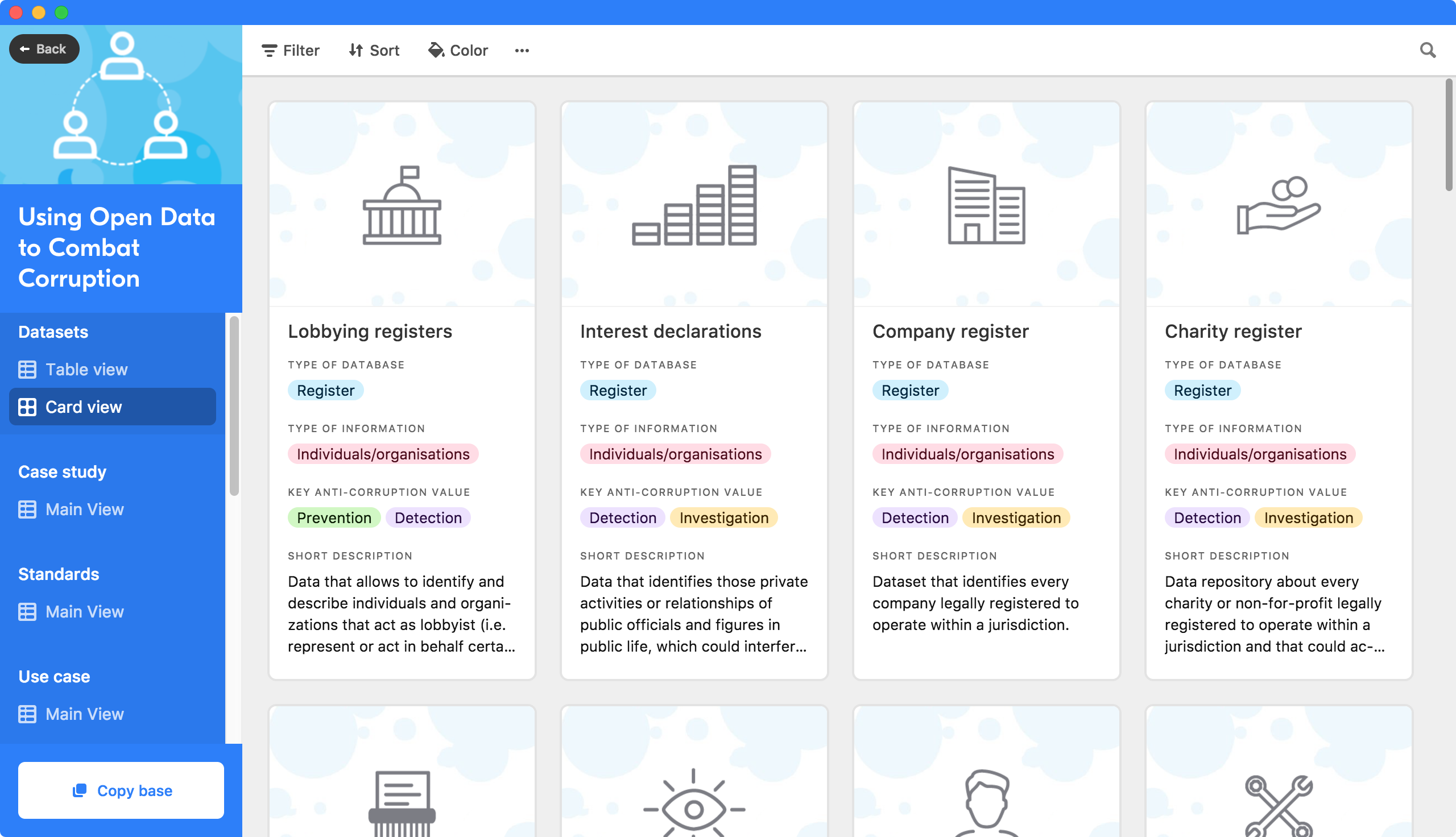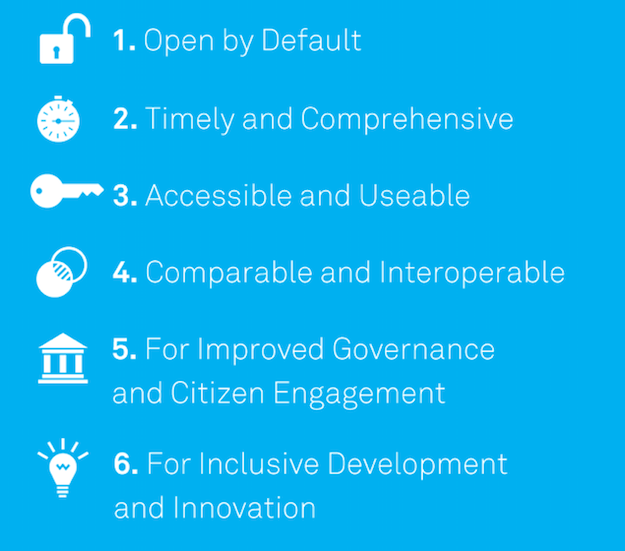On Airtable Universe, people from all walks of life can showcase their passions to the whole world. Every month, we profile one of our favorite Universe bases.
Unprecedented levels of open access to large datasets have created new opportunities to build a more accountable and just global society. Robert Palmer is the director of partnerships and communications at the Open Data Charter, an organization that supports governments as they implement shared open data principles.
To accompany their extensive Open Up Guide, the Open Data Charter has published an accompanying base on Airtable Universe that lists the types of datasets that governments can publish to combat corruption. We sat down with Palmer to talk about the Open Data Charter, the Airtable base, and how open data can fight corruption.

Tell us a bit about yourself.
I'm Robert Palmer, and I work for the Open Data Charter. We're a small organisation so I do a bit of everything, but my main focus is on partnering with governments and other expert organisations. Before working here, I was at Global Witness, where I led a global campaign to expose how corrupt politicians move their money through the financial system. So I've seen how corruption works first hand and I know that getting more information out in the public can really help.
Tell us a bit about Open Data Charter.
Open data is data that anyone can access, use or share. The Open Data Charter is a collaboration between governments and experts working to open up data around a shared set of principles. Almost a hundred organisations and governments have signed up to our six principles of what good open data looks like.
How does Open Data Charter use Airtable?
A key part of what we do is to help governments solve specific policy problems using open data. This involves working with experts to understand what datasets governments can release as open data. Our first project was on using open data to combat corruption and we used Airtable to list the types of data sets that can be helpful for this and the attributes they need. We're collaborating with the government of Mexico to test whether this works in practice.
How can open data help fight corruption? What can governments do? What can ordinary citizens do?
Corruption has a devastating impact on the lives of people around the world. When money that should be spent on schools, hospitals and other government services ends up in the hands of dishonest officials, everyone suffers. Corruption is driven by networks of officials, professional intermediaries and companies and in order to tackle this crime, you need to understand and dismantle these networks. Paradoxically, corruption schemes frequently rely upon the law to secure ownership of companies, land and assets used to launder their proceeds. Opening up government information can potentially have a big impact.
Open data can give ordinary people access to information on where their government is spending money. With the right training citizens can use data to flag up suspicious behaviour and sometimes even expose individual cases of wrong doing.
What's an example of open data being used to fight corruption?
Ukraine’s public procurement system was once notorious for corruption and inefficiency. Since launching ProZorro, the country’s open source, open data e-procurement system the government has saved 14 percent on its planned spending (more than 300 million Euros) and seen a 50 percent increase in companies bidding for contracts—helping build business and citizen trust in the government process.

